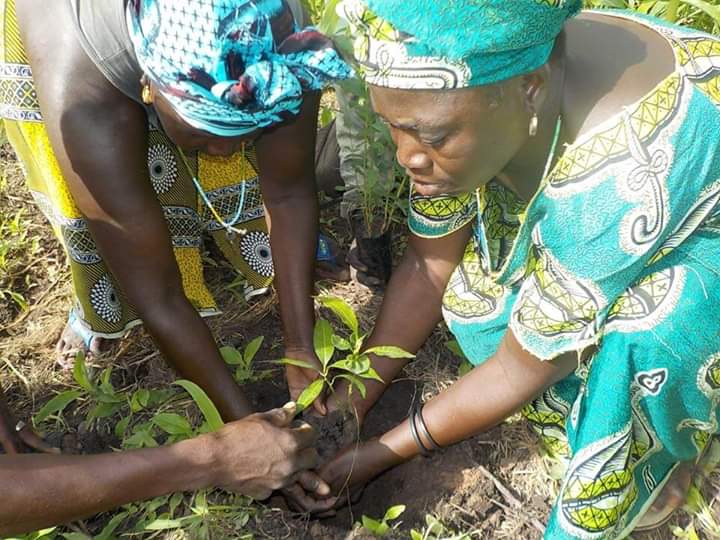Together with Rural Women in Environmental Sustainability
Feb 4, 2020
Story

Across Cameroon and other African countries, women play critical roles in relation to their natural environment. Often deeply dependent on available natural resources for food, fuel and shelter, women can be particularly vulnerable to environmental changes or threats. Because women’s workload is often centered on managing natural resources, biodiversity and ecosystems, their experiences and perspectives are essential to sustainable development policy making and actions at every level, for a healthy planet for generations to come.
Women in Cameroon in particular and developing world at large are predominantly responsible for management and conservation of resources for their families. Women spend vast amounts of time collecting and storing water, securing sources of fuel, food and fodder, and managing land be it forest, wetlands or agricultural lands. As women are primary caregivers to children, the elderly and the sick, whole communities rely on them and yet gender inequality persist. Their traditional and generational knowledge of biodiversity, for example, supplies communities with medicines, nutritional balance and crop rotation methods. When drought, erratic rainfall or severe storms affect access to these basic resources, women’s lives and their families’ lives can be intensely affected as the case of Cameroon and Africa. In fact, studies have shown that natural disasters disproportionately hit women, lowering female life expectancy rates and killing more women than men, especially where levels of gender equality are low as the Convention on the Elimination of All Forms of Discrimination Against Women (1979), an international “bill of rights” for women, addressing the host of environmental issues is not being respected.
Women constitute just over half the world’s population, but women are responsible for feeding much of it especially in rural slumps of developing countries. Women produce between 60 and 80 percent of food in developing countries and yet they officially own only 2 percent of land worldwide, according to the Food and Agriculture Organization. Historical inheritance laws and customs often prohibit or limit women’s direct control over land as the case of Cameroon and Africa; even when women are able to own and lease land, they may not be able to secThe Role of Women in the Sustainabilityure loans or insurance to keep their resources safe. The lack of equitable land rights remains a major obstacle to women’s empowerment and poverty alleviation and the Convention on the Elimination of All Forms of Discrimination Against Women (1979), an international “bill of rights” for women, addressing the host of environmental issues is not being respected. ~Tata~




